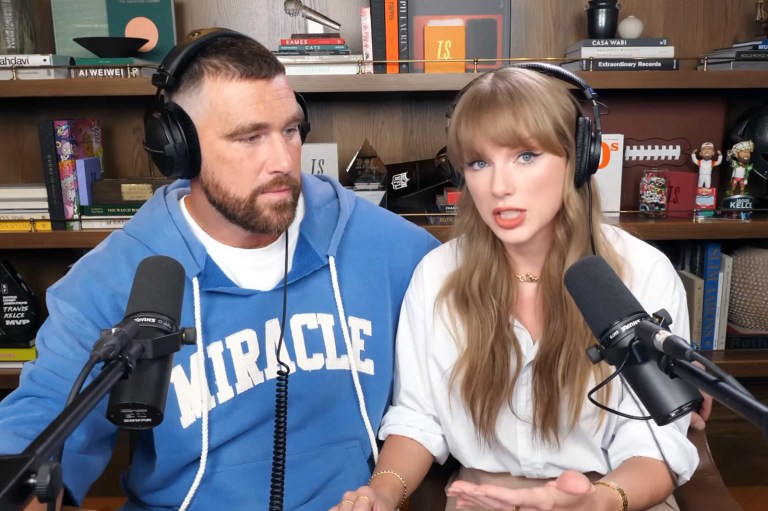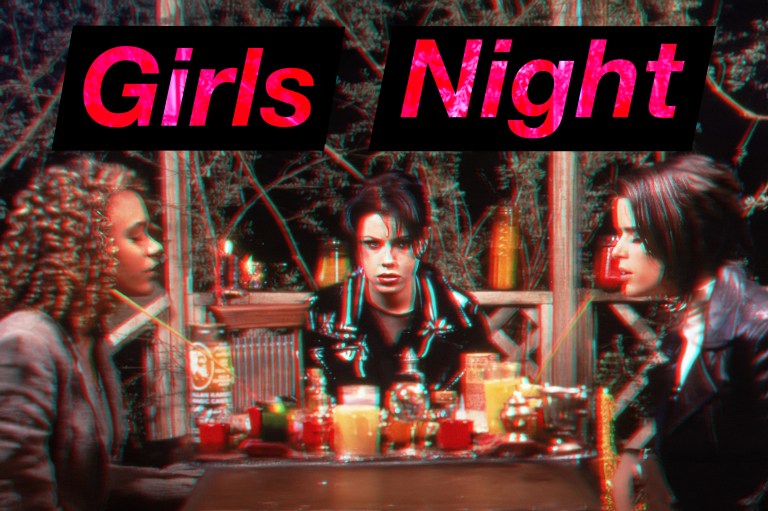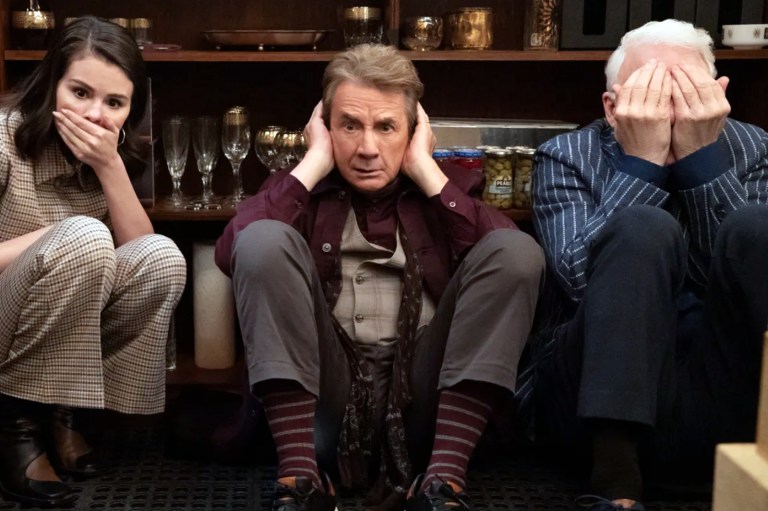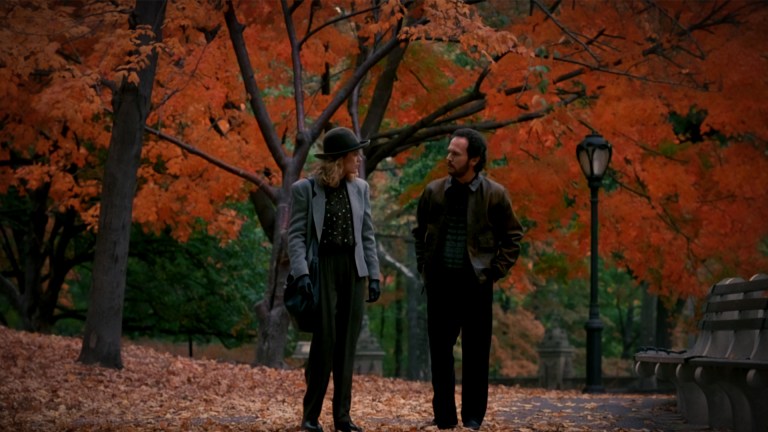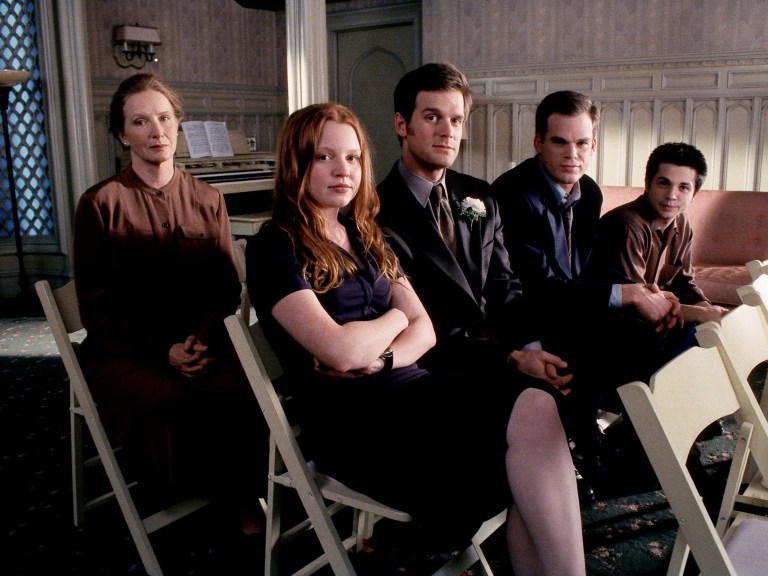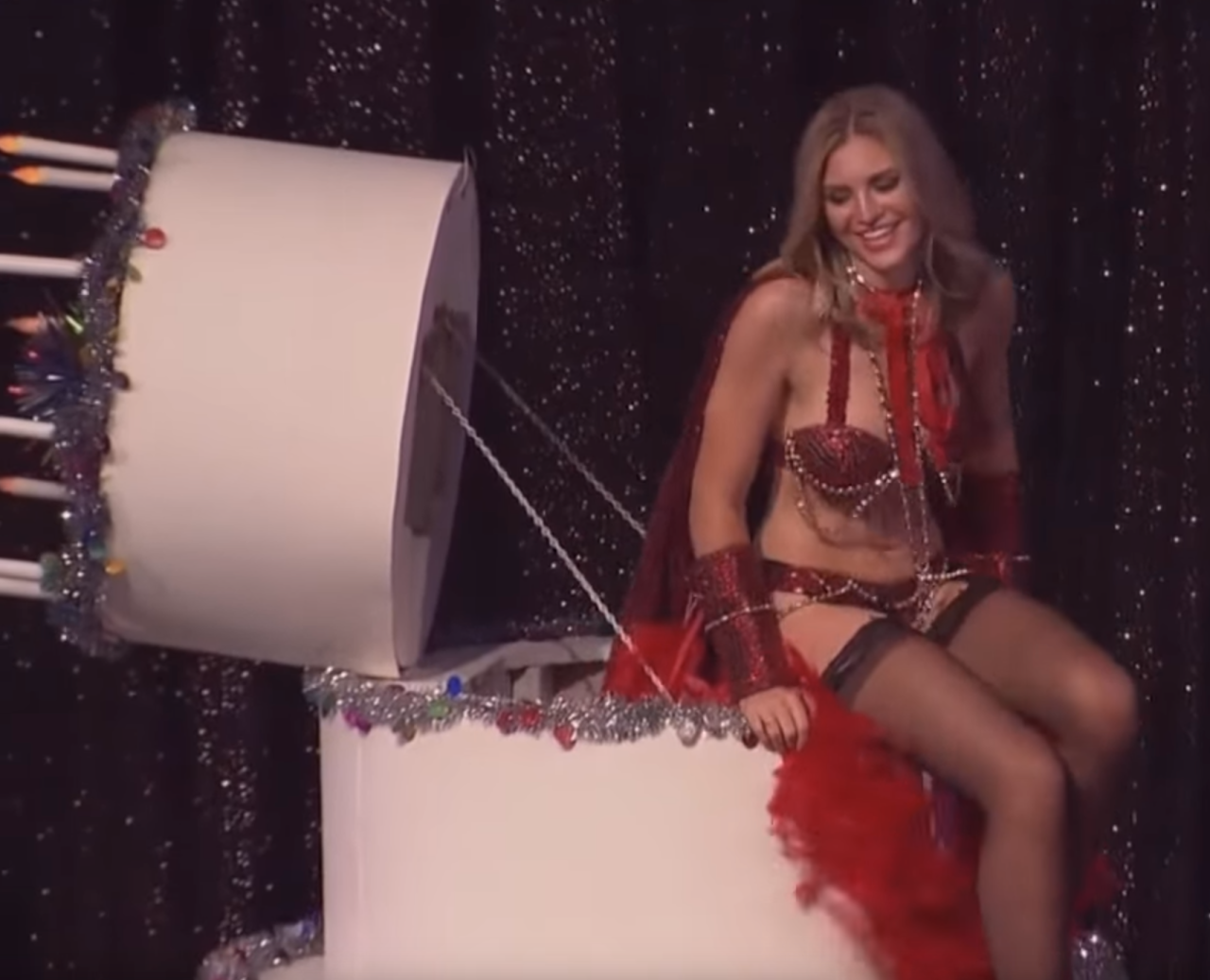
‘The Bachelor’ Is The Most Offensive Show On TV
There isn't a more misogynistic, racist or homophobic program on television ... so why is the long-running ABC reality program still so popular after 14 years?
By James Swift
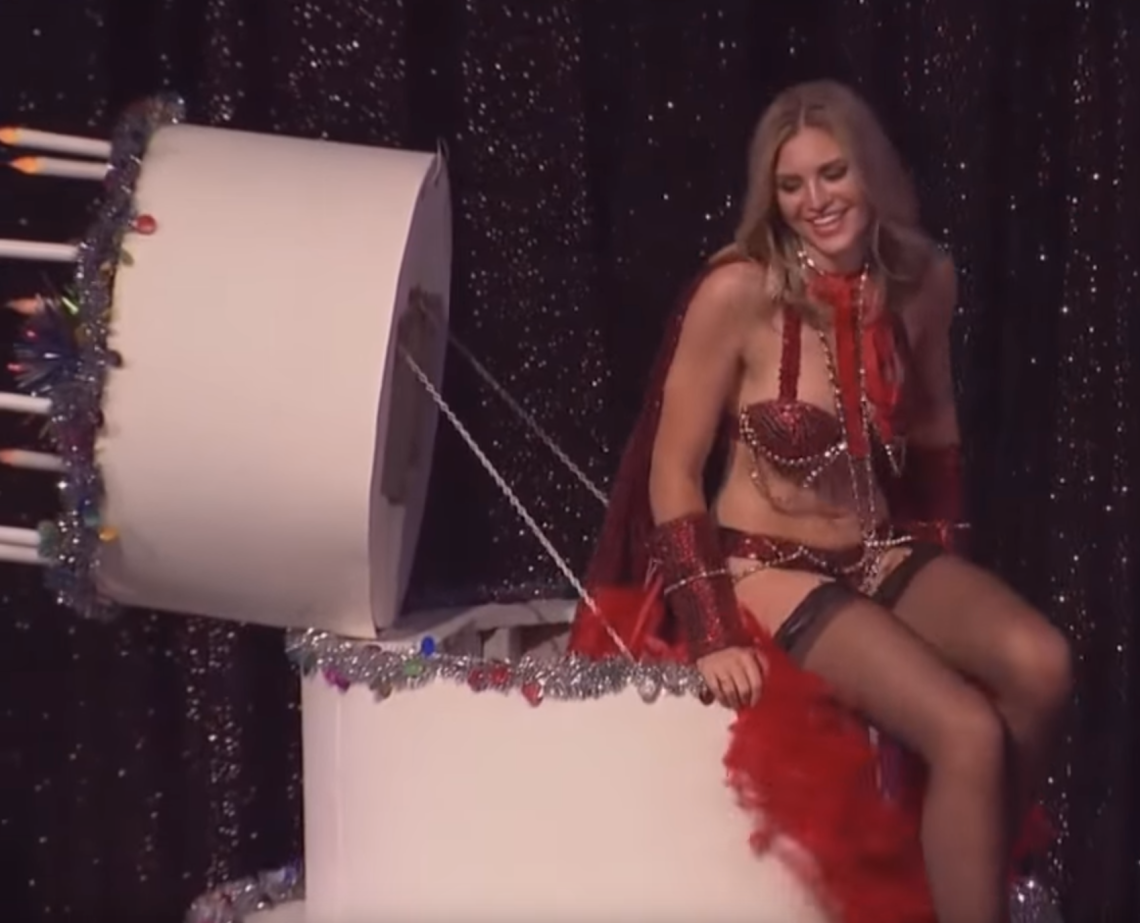
One of the most common arguments against pornography is that – in addition to degrading women – it also gives male consumers unreasonable expectations of romantic relationships. Fare of the sort, the old line of thinking goes, presents a fantasy world where submissive women cater to every impulsive whim of her male manipulator; instead of viewing sex as a mutual emotional experience, good old fashion smut transforms intercourse into a cold, one-sided impersonal experience in which the sole objective is individual pleasure at the expense of someone else’s body.
It’s a fair enough rationale. That said, how come nobody ever argues from the opposite side of the equation and calls out “romantic” pop culture for presenting an unrealistic depiction of love to female viewers?
How many young women have had their expectations of intimate relationships shaped by the pantheon of animated Disney offerings – those quite literally cartoonish facsimiles of courtships in which wealthy princes and powerful warriors sweep the unassuming, bookish leading lady of her feet and grant her a happily ever after ending filled with riches and prestige? Subtextually, the studio’s classics from the late 1980s and early 1990s are far from feminist works; Beauty and the Beast paints an almost cringeworthy portrait of an abusive relationship – with the young woman literally held hostage by her snarling, violent captor eventually falling in love with him – while The Little Mermaid champions the notion that, if a woman wants a man to desire her, all she has to do is look pretty and keep her mouth shut.
The gallery of modern love story “classics” are hardly any better. On one end of the spectrum, there’s the schmaltzy, melodramatic kitsch of the Nicholas Sparks oeuvre and on the other, the plastic, softcore escapism of Fifty Shades of Grey. In between is a vast chasm of smarmy Millennial comedies – Nick and Norah’s Infinite Playlist and 500 Days of Summer and the like – which are really more about the characters’ inability to grasp what love is than genuine reflections on romantic affairs.
However, they all pale in comparison to the uncontested champion of insincere “romantic” pop cultural pandering, The Bachelor. Since 2002, the beloved ABC – and by default, Walt Disney – program has celebrated a wholly unfeasible, wholly disingenuous and wholly unhealthy imitation of human relationships, in turn warping an entire generation of women’s notions of what “love” is into little more than a game of psychological one-upmanship. Indeed, The Bachelor and its never-ending string of spin-offs (The Bachelor, Bachelor in Paradise, Bachelor Pad, etc.) are unquestionably the most offensive television programs on the airwaves these days, all representing unrepentant carnivals of racist, sexist and heteronormative idealism.
Imagine the horrid conceptualization of “dating” a female adolescent culls from the program. From the get-go, “love” is depicted not as a natural, intimate interpersonal relationship, but a “game” that is to be won or lost. The bachelor represents some sort of golden idol, a much-desired object that is valuable simply because he is desired by other women. The idea isn’t to develop a genuine, emotional connection with another human being, but to simply “outdo” your rivals – and almost always through a series of manipulative, underhanded and needlessly antagonistic means.
Awash in a sea of alcohol, the suitors are forced to live in an isolated compound. They are only allowed to leave the fortress of love if and when their object of masculine worship tells them they can. They bicker and complain and mercilessly attack one another for their appearances and their behaviors, with demeaning terms like “bitch,” “psycho” and “slut” hurled with the casualness of parade confetti. The bachelor holds complete and utter control over them; his approval – manifest in a symbolic rose – becomes their sole reason for existing.
Talk about female empowerment, no?
Furthermore, the dates give young women a horribly unrealistic depiction of what a modern day courtship actually resembles. Using the eponymous bachelor as a measuring stick for their own romantic partners, they anticipate the man of their dreams being able to lavish them with fancy dinners and outlandish dating activities – helicopter rides, private concerts, afterhours picnics at world famous concert halls, ride-alongs with A-lister celebrities – and whisk them off to whatever international destination they so desire at the drop of a hat. Imagine their disappointment when their high school dating pool is completely devoid of multimillionaires – or for that matter, anyone allowed to stay out after 11 on a school night.
The Bachelorette is hardly any better. In fact, it actually promotes the competitive, alpha-male, dudebro archetype as the kind of guy women should really be after; who cares about personality and compassion, just as long as your male superior looks good and makes enough money?
The brazen misogyny is coupled with an oddly archaic celebration of heteronormativity – unsurprisingly, in 20-plus seasons of the program and its miscellaneous spinoffs, there has yet to be a single LGBT contestant. In fact, the only time I’ve ever seen the topic of homosexuality arise on the program was when promotional spots sardonically teased a blossoming “Brokeback” relationship between two contests … resulting, of course, in a bait and switch non-story for the viewers who tuned in later that week.
The programs take the heterocentrism a step further, however, portraying marriage as the proverbial end zone in the game of amour. Not only are contestants expected to wed after a handful of dates – and almost always at least one stop at the “fantasy suite,” the series’ oh-so-coy euphemism for doin’ it – the females are actively encouraged to abandon their professional pursuits and make motherhood their new central goal in life. A recent season of The Bachelor concluded with a Chicago fertility specialist quitting her job so she could live in wedded bliss with a suave farm boy out in a decrepit, rural Midwestern mudhole – shockingly, they called it quits shortly after the final episode hit the airwaves.
The franchise is also an unabashedly racist one. In 20 seasons and counting, there has never been an African-American Bachelor or Bachelorette. Indeed, the only truly non-white bachelor was a stereotypical Hispanic lothario, who – of course – is universally derided as the most hated leading man in the history of the program. From casual observations, the show is especially prejudiced against women of color – while lighter-skinned African Americans might make the roster, you will never see a woman on the program with a complexion “failing” the hypothetical “brown paper bag test.” Cultural sensitivity is not to be expected, either, as apparent by the last season of Bachelor in Paradise, in which Mexican locals were depicted as little more than poncho-clad layabouts, utterly functionless for anything but stirring tequila.
Another gloriously insensitive transgression routinely perpetrated by the program is its trivialization of mental disorders. Each and every season, there is guaranteed to be at least one contestant typified as emotionally unhinged: violent, overly-confrontational suitors – almost always individuals of color – displaying signs of intermittent explosiveness disorder, vindictive schemers showing symptoms of sociopathy, and of course, the outright schizophrenics, whose activities run the gamut from talking to chipmunks to stopping dates dead in their track to investigate sightings of indigenous vegetables.
And of course all the contestants fit the mass marketing preconceptions of what beautiful people ought to look like. All of the females on the program are thin and often the beneficiaries of cosmetic surgery (indeed, one contestant on the last edition of Bachelor in Paradise spent half the show bragging about her new pair of silicone-infused breasts) while all of the males are in peak physical condition, with washboard abs and meticulously groomed – but not too meticulously groomed – features. In The Bachelor Universe, no one beyond the age of 35 exists and no one – male or female – is allowed to remove their eyeliner. The Bachelorverse also seems to be a utopian society where overweight people and people with disabilities just don’t exist – and neither does anyone with a sense of intellectual depth, seemingly.
I’m not sure what’s more troubling: the fact that so many young women ingest this heaping helping of cisgender, cissexual affirmation week in-week out, or the fact that so many young women ingest this heaping helping of cisgender, cissexual affirmation week in-week out unaware of its obvious phoniness. Yes, Bachelor Nation, your beloved series takes the pro wrestling approach, as former contestant Megan Parris revealed in 2009. Those dramatic twists and turns that keep you glued to your flat screen? All the results of selective editing and producer diktats. “They basically will call you names, berate you, curse at you until they get you to say what they you to say,” Parris said. The show’s creator went as far as to tell 20/20 that its producers develop contestants into characters fitting storyline needs – each season needs its fair share of “villains,” he coolly remarked. Further cementing the program’s reputation as scripted entertainment, a leaked 2012 taping revealed audio of a producer telling a contestant which emotions to feign in between commercial breaks.
Despite living in an era of (alleged) multicultural, feminist enlightenment, this decisively un-diverse bastion of heteronormative chauvinism remains one of the most popular shows on network TV, with an estimated 9 million viewers in the 18-49 demographic tuning in to The Bachelor every week in 2014. Oblivious – or worse, unconcerned – by the show’s artificiality and blatant misogynistic overtones, women all across the U.S. nonetheless gather for The Bachelor and The Bachelorette parties each Monday evening.
Count my girlfriend of five-plus years among them. Recently, I asked her – a professional social services provider with a graduate degree in psychology – why she enjoyed The Bachelor and its affiliated programs so much … this, despite the show’s dreadful fakeness and less than flattering depiction of the fairer sex.
What keeps her glued to the tube? The train wreck factor, naturally.
“You know you should look away, but you can’t,” she confessed. “When you see men and women crying and fighting over a person that none of them really know, much less love, your wheels begin to spin. What are they thinking? Why did they do that? What does reality TV do to a person? How much dignity is one willing to sacrifice for 15 minutes of fame?”
Sure, she acknowledges it promotes all sorts of inequalities and paints grossly unrealistic depictions of relationships. But like so many other Bachelor fanatics, she’s hopelessly addicted to ABC’s potent blend of emotional turmoil.
She – like the other 9 million viewers every week – isn’t there to watch aspiring models and actors find made-for-TV romance. Rather, she’s totally transfixed by the tragicomedy, in utter awe of the absurdity, and mesmerized by the majestic, runny-mascara melodrama of it all.
In that, it becomes painfully clear why the show – despite its deluge of offensive overtones – has had such staying power. The Bachelor isn’t about celebrating love … it’s about celebrating contempt.
As my significant other so eloquently put it: “You know that it is fake, you know that it promotes a skewed view of gender roles and you know that the characters are as shallow as a puddle, but will I stop watching?”
“Definitely not before they send the crazy one home.” ![]()
